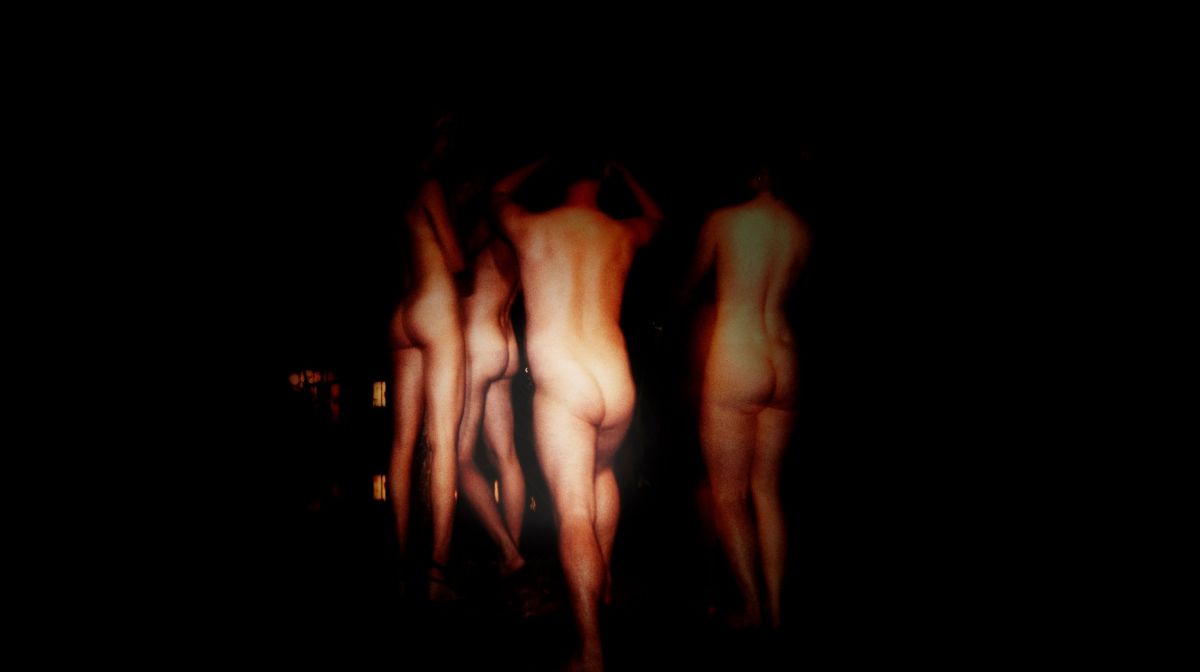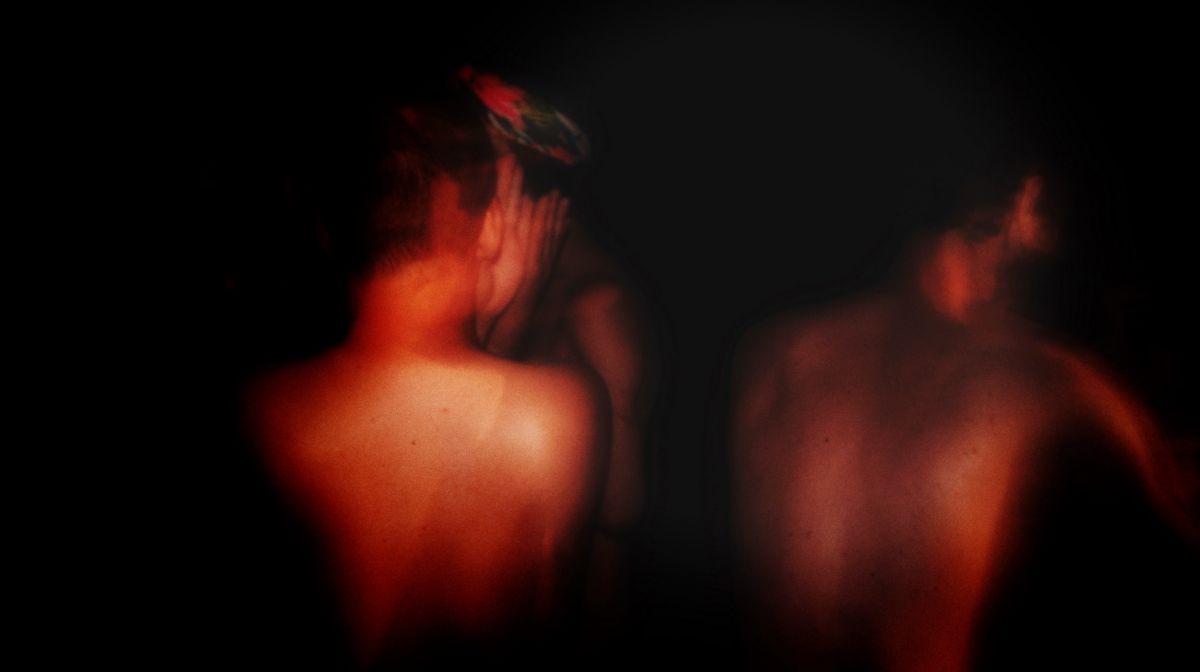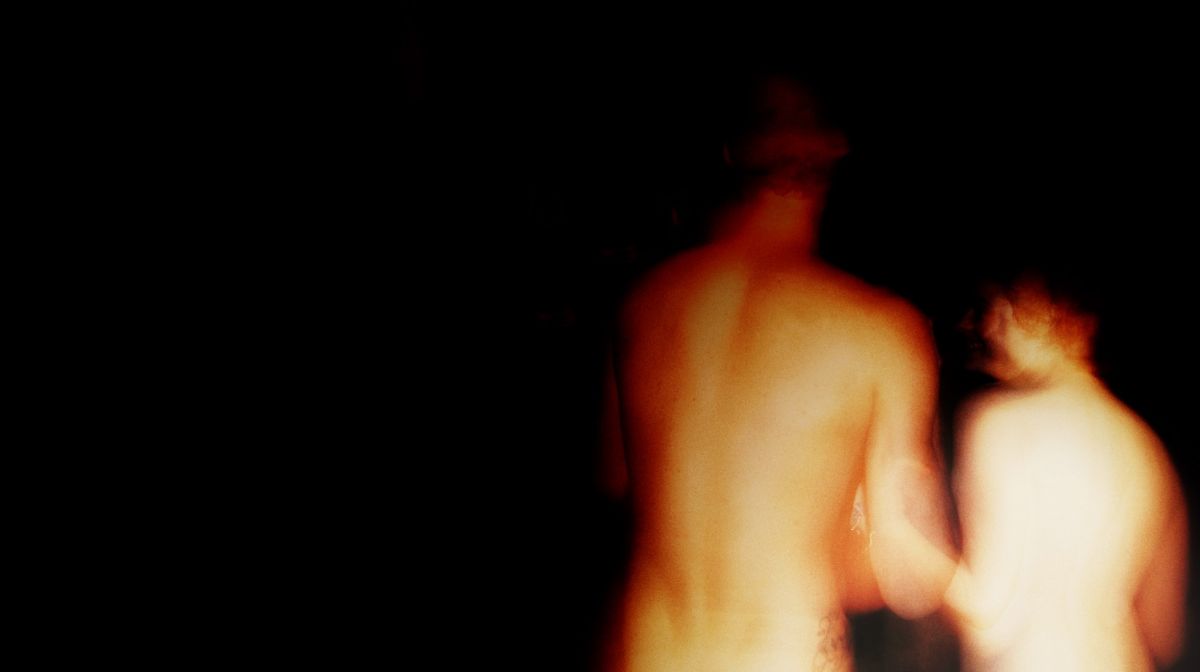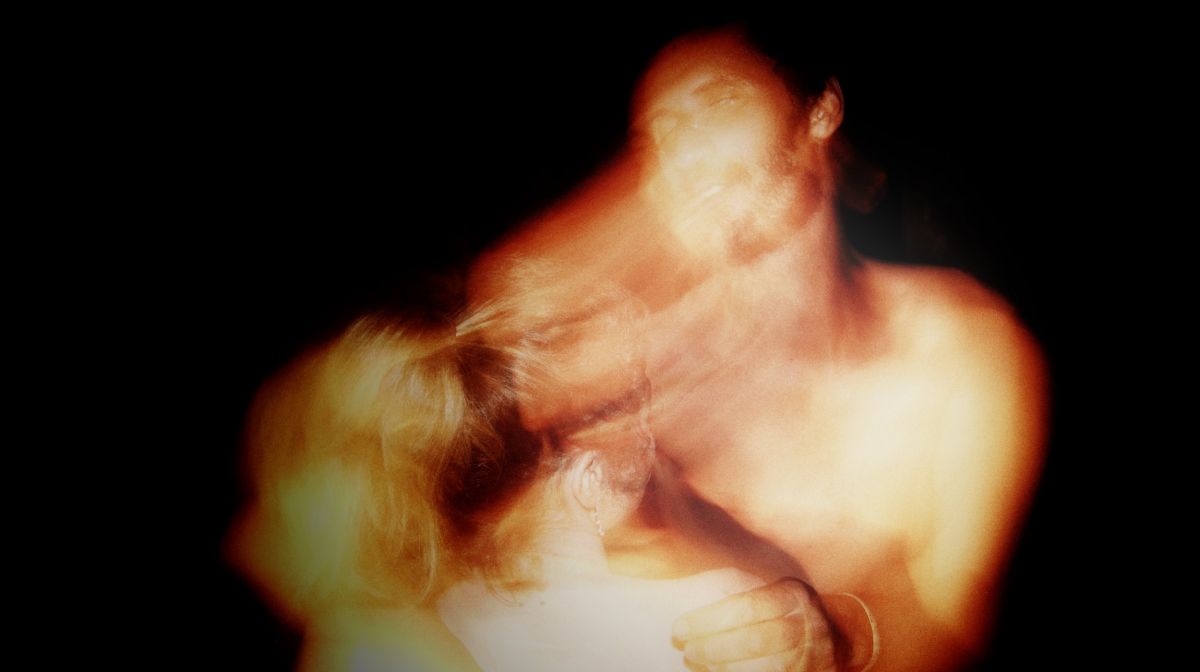Paris #1

On Nikolay’s balcony I’m fluttering like a carpet moth above the half-light roofs of Paris,
my mouth full of armchair upholstery and blackbird feathers,
thinking that I have no good reason to believe that if I jump
over the railing and to the soaking street of the Rue de la Punaise,
it would end up so badly:
who’s to say, really—who could say, that is, definitively—
that I wouldn’t drift along with the coal dust and burnt meteorite particles
back into Nikolay’s room, with its photographs of bald girls with duct tape on their tits and
of men in farmers’ overalls holding each other in the yellow darkness of subway tunnels,
of bodies in the trees, of the long teeth of cellar queens…
and there on his ceiling, the very anus of the universe taking the form of a clay molding
in the shape of a hollow octopus,
its tentacles extended in every direction you please?
Didn’t a man pour his friend’s ashes on the heads of the string section
of the New York Metropolitan Opera,
causing the police to shut the place down for fear that a hazardous substance had been released—with malicious intent?
And isn’t it so that his boyfriend was a dance choreographer and a psychotherapist that offered
team-building workshops that leveraged the unifying power of dance—
and that he himself roleplayed annual reviews and notices of termination at corporate retreats
to teach executives how to react when faced with the discomfort of another person’s misery?
Nikolay is wearing his jungle shirt and pulling at the leg
of a girl lying moonlike on the bare mattress on the floor,
looking over at Masha and saying to her, “poopsik, poopsik” —baby, baby—
while Masha puts on her silk Japanese housecoat
and screams “We are from the North!”
and self-administers an anesthetic off the lip of a flower pot,
finally grabbing the girl’s other leg
to pull at it in synchrony with Nikolay,
loving each other to tears,
this easy music playing that makes you think of the beach.

Did you know that in some cases, entire communities have taken root in cemeteries,
thousands of people like daisies among the tombs
with their dogs and their wedding photos,
with inflatable pools for their kids,
hanging blue kitchen curtains at the doors of mausoleums
and watching soap operas on little televisions with jury-rigged wires,
dyeing flowers in buckets of pigment and knotting them together with parcel string,
sleeping on tablecloths laid out on the floors of the crypts,
washing in tin bathtubs as processions come by and emerging to
carry coffins barefoot through the tangled passageways where the hearses can’t get through,
sweeping, writing notes on their calendars,
keeping quiet when they hear voices?

“My pussy is no Raskolnikov,” says Masha.
“I mean that it doesn’t consider itself above the moral standards of society. My pussy
doesn’t believe that it has the right, for instance, to commit murder,
even if murder were to advance its interests—
as if those interests superseded those of society, or even
were themselves the interests of society. No, my pussy
believes that there is no entity that is better than another in the eyes of natural law.”
Masha says, “I once had a dream that it was raining—
although I knew that it wasn’t.
I would open my eyes, and see the sun shining on all the people walking like cats
under the wisteria of the Rue du Coup de Foudre,
and when I would close them again, I would see and hear and smell the rain,
falling on my bedcover, in my mother’s house.
It was up to me, really, whether it rained or not,
and I lay there closing and opening my eyes,
changing the weather as I like.
Can you imagine something so beautiful?”
Didn’t a man make a suicide machine in the shape of a ballistic capsule
that killed you with nitrogen gas (which
reportedly produces a brief feeling of euphoria followed by a soundless death)?
Wasn’t there an oversize button to press that looked like it opened an airplane hangar or
launched porcelain plates into the air for people to shoot with shotguns—
a button that you had to press if you wanted to go through with it?
The way to know, in fact, if an industrial civilization existed on earth before humans
is to look for sedimentary anomalies—
for instance, dead zones in the oceans, where unusually large volumes of biomass are buried,
eventually becoming fossil fuels that can power the soft lights of our sensory deprivation tanks.
I’m reminded of the time we arrived at Nikolay’s door in a decent building in the museum district,
and Masha invited us inside to a house full of life-size cardboard cutouts of Indian gurus
and bottles of peppermint tincture for the ears and nose,
and the Fisher Space Pen, which is able to write upside-down and in a vacuum,
and she went to go make a collage in the corner from photographs she found of
people standing in front of volcanoes, or of people in water,
while Nikolay offered us oysters and heavy cream from Normandy,
saying that Normandy is known for its cows… what fat, celestial animals!
Working himself into such a state that he ripped the curtains from the windows,
saying that he needed to have the sun in his eyes,
explaining that the apartment was once owned by his aunt who was a physician
and wore hats fit for a horse show.

And did you know that, thanks to a service pioneered by the Japan Efficiency Corporation,
you can rent someone to pose as your niece, or as your lover, or as your estranged father,
for hours, for years at a time, for your wedding and for that of your children—
where, at additional cost, they can deliver a heartfelt speech?
In the order form, you can explain in detail the memories they should have,
and whether they should act as if they are tired after a long day at work,
and whether they should be the kind of person that offers good advice.
Of course, no employee may have more than five families at a time,
in order to maintain a high standard of service.
When interviewed, one of the actors says that there are children, perhaps tens of them,
at this very moment, that believe, truly,
that he is their father—and when he prepares to leave them after a day at the amusement park,
often they cry and ask why he has to go—he says it’s unpleasant to see that,
but it’s not an “unreasonable emotion.”
He’s not sure his own family hasn’t been hired—but then, no one can be sure, can they?
And did you know that there are hundreds of old women,
many of them widows, but also
some that are trapped like black specks in their own houses and ignored by their families,
that shoplift: meat, chocolate, perfume…
hoping to be arrested, so they can be taken care of in prison,
and walk the grass fields and die there in peace?
And did you know that there is an epidemic of young men who withdraw from society,
locking themselves in a bedroom and taking their mail under the door,
collecting photographs of other people’s lives,
of people standing in front of volcanoes, or of people in water,
photographs appearing under their doorway in the mail?
A cottage industry of social workers try to lure them out with letters signed “Your Sister”,
eventually speaking to them on the phone and then, finally,
through the door, their mouths pressed against the keyhole,
until the young men acquiesce and are taken in wheelchairs to a transition house
where they are made to wear dinosaur costumes and interact with the children of the staff—
in order to learn how to re-enter society—
the sisters brushing their hair and telling them how well they’ve done,
sometimes falling in love with them?
Of course, I don’t do it—I don’t jump from the balcony—I’m not unreasonable.
Masha says,
“When I die, you donate 5,000 Euros to the communist party and bury me next to my mother,
and don’t you canonize me there at my open grave—
everyone dead is so grand all of a sudden…
there isn’t much to say about me,
I could cook and I knew well certain aspects of Napoleonic history and I was disliked,
and that’s all there is. You eat ham with parsley and you
leave me in the ground.
Just to be perfectly clear, you’ve come as yourself today, haven’t you?”